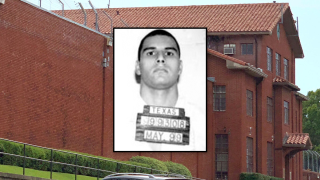
The Supreme Court on Monday ordered a further review by a lower court of a lawsuit brought by a Texas death row inmate who objects to a policy that bars a chaplain from accompanying him into the death chamber.
The justices ordered Ruben Gutierrez's case sent back to a federal trial-level court for additional proceedings. The justices in June had blocked Gutierrez's execution after Texas changed its policy and barred all spiritual advisers from the death chamber.
Gutierrez's attorneys argue his religious rights are being violated. The justices in June had asked a lower court to determine whether there would be "serious security problems" if Texas' death row inmates were allowed to choose spiritual advisers to accompany them into the death chamber. The lower court said no.
On Monday, in a brief order, the high court sent the case back to the trial court. The justices said that given the lower court's findings that there would be no serious security problems if spiritual advisers were allowed, the lower court should now consider "the merits of petitioner's underlying claims."
Texas had previously allowed state-employed clergy to accompany inmates into the room where they'd be executed. But the state changed its policy in 2019, barring all clergy from the death chamber. That change came after the Supreme Court halted the execution of another inmate, Patrick Murphy, who requested a Buddhist adviser be allowed in the chamber. Texas' prison staff included only Christian and Muslim clerics, meaning Murphy's adviser would have had to observe from a different room. By changing the policy, Texas argued all inmates were being treated the same.
"A condemned prisoner's access to the comfort and guidance of a spiritual advisor at the time of his death is not a matter of convenience, it is a fundamental right," Gutierrez's attorney Shawn Nolan said in a statement after the Supreme Court acted Monday.
Gutierrez is on death row for fatally stabbing an 85-year-old woman. Prosecutors said Gutierrez was attempting to steal more than $600,000 that Escolastica Harrison had hidden in her home in Brownsville, located in Texas' southern tip, when he killed her in 1998.

